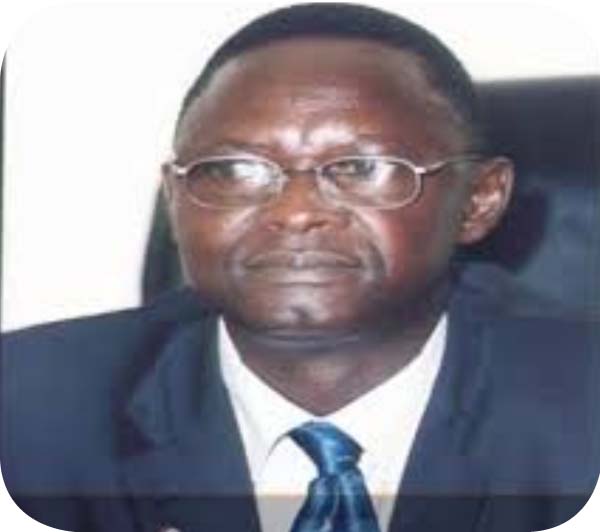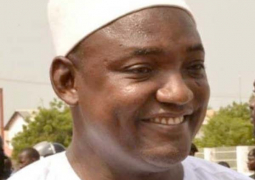
This figure was in a statement he read Tuesday on behalf of President Yahya Jammeh at the launching of the Gambia Commercial Agriculture and Value Chain Management Project (GCAV) held at Kairaba Beach Hotel.
The launching was attended by cabinet ministers, regional governors, directors-general, project coordinators, representatives of civil society organizations, UN agency representatives and of the World Bank mission, among others.
Finance minister Touray said the launching of this project is “another milestone in our difficult but sure route to agricultural transformation from subsistence to commercial agriculture that would lead the nation to increase household income and sustainable national and household food and nutrition security.”
This project is an addition to the eight ongoing projects in the agriculture sector, two of which are funded by the World Bank to the tune of over 31 million US dollars.
This was within the wider funding of 18 agricultural projects totalling 186,611,560 million US dollars, since July 1994, according to the statement.
“The increased funding enjoyed by the government is testimony of the increased faith and confidence that the development partners have in the government and the people of this great country,” the Finance minister declared.
“It clearly demonstrates the strengths and benefits of having a shared vision that will help achieve the national objectives as enshrined in all our national blueprints - the Programme for Accelerated Growth and Employment (PAGE); Vision 2020; The Gambia National Agriculture Investment Plan (GNAIP) and most recently the Vision 2016,” Minister Touray added.
The development objective of the GCAV project is to improve production productivity and access to market of targeted agricultural commodities for small-holders, according to Mr Touray.
The project area consists of the Central River Region North and South, and the North Bank and West Coast regions of the country.
The project “shall directly benefit at least 40,000 in these three regions of which at least 70 percent are women, comprising small-scale rice and vegetable farmers, through access to irrigable land, 500 young entrepreneurs to establish off-farm micro, small and medium-size enterprises and processing and marketing entrepreneurs.”
He added that this project is expected to benefit directly or indirectly a total of 80,000 farmers.
Minister Touray also disclosed in the statement he read that at least six processing plants, as well as two rice milling facilities and mango processing plants will be established to reduce post-harvest losses.
He said this will support Made in The Gambia products, thereby facilitating the policy of “eat what you grow and grow what you eat.”
The permanent secretary at the Ministry of Agriculture, Ebrima Jawara, said the launching of the project comes at a time when they are transforming the agricultural sector from a traditional, subsistence one, to a more modern commercial agriculture in line with Vision 2016, the brainchild of the President.
Jawara announced that the central projects coordinating unit of the ministry of Agriculture in Banjul will manage the day-to-day implementation of GCAV, through public and private service providers on the basis of agreed annual work plans and budgets and SMART deliverables.
“The government in its drive to ensure accountability and effective utilisation of public funds, recently established a committee under the Office of the President, mandated to monitor and evaluate projects under the Ministry of Agriculture.
This committee will work with the unit and donor partners to ensure that the government’s development agenda is met and even exceeded, resulting in tangible impacts on the target beneficiaries and the nation as a whole, Jawara added.
He thanked the Word Bank and other development partners “for their timely and valuable support in the realisation of our national objectives.”
The Minister of Agriculture, Solomon Owens, announced that this project would be a key player in the achievement of the Gambia National Agricultural Investment Plan and Vision 2016.
“It should therefore be a matter of national pride and patriotism to all concerned with its implementation to ensure a smooth and successful outcome,” Minister Owens added.
According to Agriculture minister, the development objective of the GCAV project is to improve smallholder productivity and access to markets for targeted agricultural commodities.
According to him, the target commodities - rice and vegetables - are high on the political agenda of the country.
The World Bank representative, Ms Evely Awitto, said the GCAV project is one of the key instruments of the bank’s joint partnership strategy for The Gambia, 2013-2016.
She added that the strategy deepens the partnership between these institutions, and has been designed to better harmonize an important part of donor assistance in The Gambia in line with the “Paris Declaration on Aid Effectiveness.”



